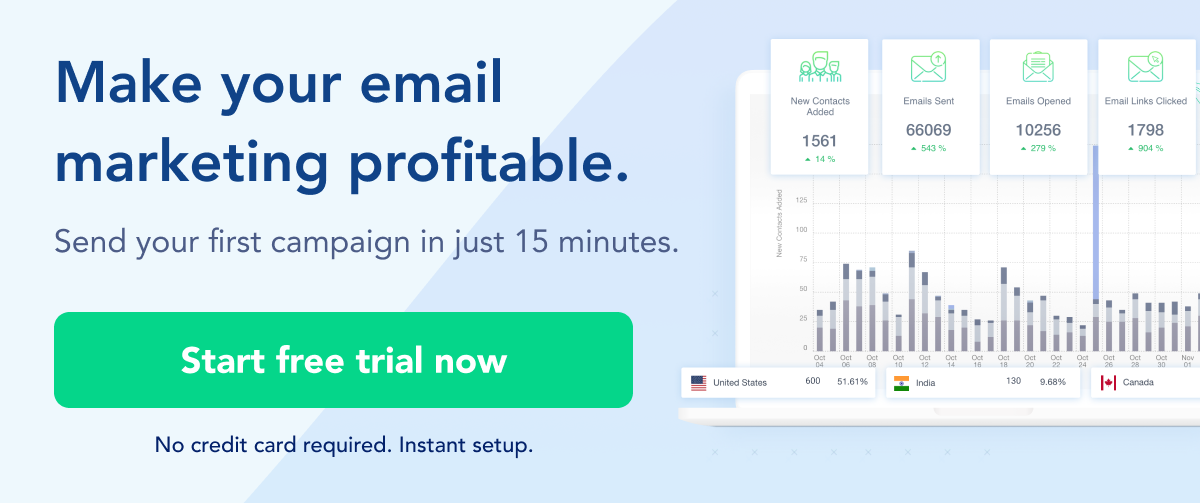
Comprehensive Guide to Avoiding Spam Trigger Words
Ensuring that your emails reach the inbox without being flagged as spam is crucial. Spam filters have evolved beyond simply catching certain keywords; they now use complex algorithms that analyze email content, sender reputation, and engagement patterns. However, avoiding certain “spam trigger” words is still a foundational step in improving deliverability.
This guide provides a curated list of common spam trigger words across key industries, while also offering deeper insights into modern strategies to optimize email content and bypass evolving spam filters.
Table of Contents
Why Spam Trigger Words Matter
Spam filters today don’t just rely on individual words. Instead, they use advanced algorithms that evaluate an email's context, reputation, and historical data. That said, many spam triggers still contribute to lower deliverability rates, especially when combined with other negative factors like high bounce rates, low engagement, or poor sender authentication.
By refining your language and focusing on value-driven, personalized content, you can reduce the risk of emails being marked as spam.
These three statistics highlight the importance of steering clear of these words and the negative impact of failing to do so:
- Impact on Deliverability: Emails containing spam trigger words are more likely to be redirected to spam folders. For instance, using terms like "free," "guarantee," or "limited time" can significantly increase the chances of an email being flagged as spam, resulting in lower open rates and engagement.
- Sender Reputation: A low open rate due to spam filters can damage the sender's reputation. If an email campaign consistently lands in spam folders, it can lead to a decrease in future deliverability rates, making it harder for legitimate emails to reach recipients' inboxes.
- User Engagement Metrics: High unsubscribe rates and low engagement (like click-through rates) signal to email service providers that recipients do not value the content, further pushing emails toward spam folders. This cycle can severely limit the effectiveness of marketing campaigns.
Industry-Specific Spam Trigger Words and Contextual Avoidance Strategies
While the following trigger words are frequently caught by spam filters, context is key. Use these words carefully and always focus on providing value over hard-selling.
1. Sales and Marketing
In this industry, being overly promotional can land your emails in the spam folder. Avoid aggressive sales tactics and the following words:
- % off
- Buy now
- Call free
- Clearance
- Guaranteed
- Limited time
Strategy: Instead of focusing on promotions, highlight how your product or service meets the specific needs of your audience. Personalize offers based on previous interactions to build trust.
Examples:
- Bad: "Last Chance: 90% Off Everything - Don't Miss Out!"
- Good: "New Arrivals: Designed Based on Customer Feedback"
2. Finance and Banking
Emails from financial institutions can trigger filters due to their sensitive nature. Be cautious with these words:
- 100% free
- Apply now
- Bad credit
- Fast cash
- Loan
- Mortgage
Strategy: Focus on transparency and credibility. Instead of using words like "Apply now," provide clear, factual information about the financial services you offer. If certain terms are unavoidable, ensure the email is personalized and sent only to engaged subscribers.
Examples:
- Bad: "URGENT: Your Account May Be at Risk! Open Immediately to Avoid Penalties and Protect Your Money"
- Good: "Secure Your Financial Future: Exclusive Savings Account Offer with 5% Interest Rate and No Hidden Fees"
3. Health and Wellness
Emails promoting health products are often flagged due to overpromising or exaggerated claims. Be wary of words like:
- Lose weight
- Miracle cure
- Natural healing
- Pain relief
- Instant results
Strategy: Avoid making sensational claims. Instead, offer scientific evidence or testimonials to substantiate your product’s effectiveness. Create value by focusing on how your product can improve the recipient’s life over time, rather than promising immediate results.
Examples:
- Bad: "Lose 50 Pounds in 7 Days! Miracle Weight Loss Pill Guaranteed to Melt Fat Instantly"
- Good: "Transform Your Life: 30-Day Wellness Challenge with Personalized Meal Plans, Workouts, and Expert Guidance"
4. E-commerce and Retail
Retailers often face challenges due to the high volume of promotional emails. Avoid these common words:
- Bargain
- Best price
- Cash bonus
- Discount
- Money back
- Order now
Strategy: Use storytelling and customer testimonials to drive conversions instead of relying on discounts and sales-heavy language. Highlight the benefits of your products and how they align with customer preferences.
Examples:
- Bad: "LAST CHANCE!!! Buy Now or Regret Forever! Limited Stock Clearance Sale Ends in 1 Hour!!!"
- Good: "Elevate Your Wardrobe: Curated Summer Collection with Exclusive Discounts, Free Shipping, and Easy Returns"
5. Technology and Software
Tech companies often trigger filters by using terms that suggest aggressive marketing or spammy tactics. Avoid these words:
- Click here
- Free trial
- No catch
- Opt-in
- Remove
- Sales
Strategy: Focus on demonstrating the value of your solution rather than offering freebies or promotions. Detailed case studies or ROI-focused content will engage readers without appearing spammy.
Examples:
- Bad: "Download Now! Fastest Computer Cleaner Ever! Remove Viruses, Speed Up PC, and Fix All Errors Instantly"
- Good: "Boost Productivity: All-in-One Project Management Tool with AI Integration, Real-Time Collaboration, and Intuitive Interface"
6. Travel and Hospitality
Promotional travel emails can easily be flagged by filters. Be cautious with these terms:
- Free vacation
- Cruise
- Discount travel
- Book now
- Limited time offer
Strategy: Personalize travel offers based on customer preferences and past interactions. Focus on the experience rather than the price point to engage recipients in a more meaningful way.
Examples:
- Bad: "CHEAP FLIGHTS!!! Unbelievable Deals to Anywhere! Book Now and Save 90% on All Travel!!!"
- Good: "Discover Paradise: Luxury Beachfront Resort Offering All-Inclusive Packages, Private Villas, and Unforgettable Experiences"
7. Gambling
Gambling-related emails are high-risk for spam filters. Avoid the following words:
- Jackpot
- Win big
- Bonus
- Free chips
- No risk
Strategy: Instead of focusing on guaranteed wins, emphasize responsible gaming and highlight user experiences. Showcase testimonials or case studies to build trust.
Examples:
- Bad: "Get Rich Quick! Guaranteed Winnings on Every Bet! Secret Gambling Strategy Revealed - Limited Time Offer"
- Good: "Experience the Thrill: Join Our Online Casino with 100+ Games, Secure Transactions, and Responsible Gaming Tools"
8. iGaming
Similar to gambling, iGaming emails often trigger spam filters. Avoid these words:
- Free spins
- No deposit bonus
- Guaranteed win
- Instant payout
Strategy: Focus on loyalty rewards, user engagement, and experience rather than one-off promotions. Highlight user satisfaction and in-game achievements to keep the tone engaging and responsible.
Examples:
- Bad: "WARNING: Addictive Game Inside! Play Now and Forget About Real Life! Guaranteed to Consume All Your Time"
- Good: "Level Up Your Gaming: Immersive Virtual Reality Experience with Cutting-Edge Graphics, Multiplayer Modes, and Exclusive Rewards"
Advanced Strategies for Email Deliverability
While avoiding trigger words is important, modern email deliverability goes far beyond just word choices. Here are some advanced strategies that specialists should integrate into their email marketing processes:
- Context Matters: Both spam filters and email cleanup tools look at the broader context of your email. Avoid stacking multiple trigger words in a single email, especially in subject lines. Try to keep subject lines conversational and relevant to the recipient’s preferences.
- Maintain Sender Reputation: Regularly monitor your domain and IP reputation. A damaged sender reputation can cause emails to be flagged even if you avoid spam trigger words. Using dedicated IP addresses for high-volume campaigns can help maintain a good reputation.
- Use Authentication Protocols: Ensure your emails are authenticated using SPF, DKIM, and DMARC. These protocols help build trust with mailbox providers and reduce the chances of your emails being marked as spam.
- Engagement-Based Filtering: Filters increasingly consider user engagement metrics such as open rates, click-through rates, and the frequency of unsubscribes. Keeping your content engaging and relevant to your audience will improve deliverability over time.
- Test and Optimize: Before sending large campaigns, test your emails with tools like Litmus or Email on Acid. These platforms provide insights into spam scores, rendering issues, and overall deliverability, helping you fine-tune your emails.
Conclusion: Tailoring Your Approach
To optimize email deliverability, it’s essential to combine strategic word choices with a holistic approach. Avoid spam trigger words where possible, but don’t rely solely on word lists. Instead, focus on building a strong sender reputation, authenticating your emails, and creating engaging, value-driven content. By implementing these strategies, you can improve deliverability and ensure your clients' messages consistently reach their intended recipients.



